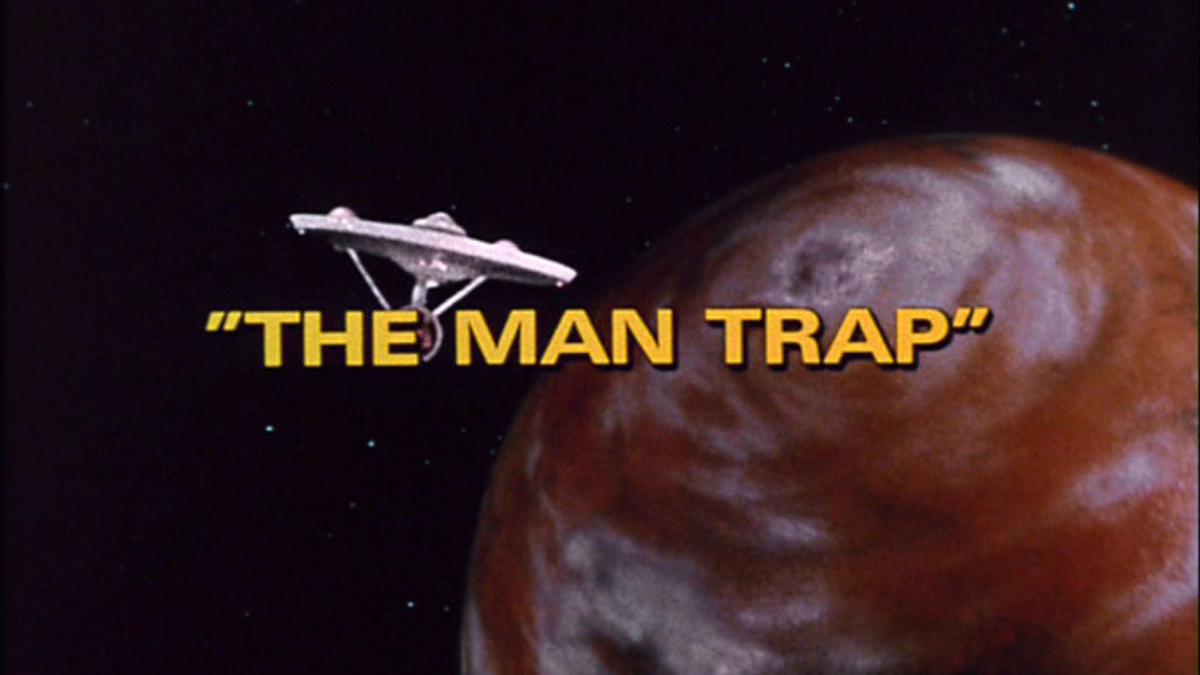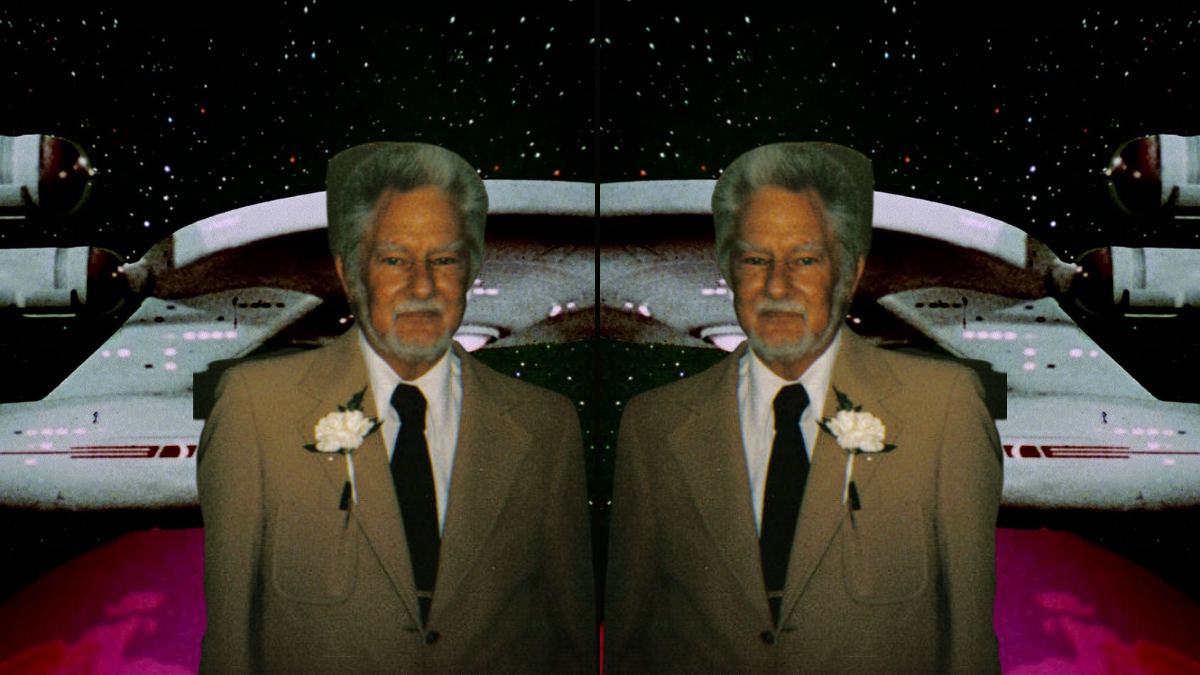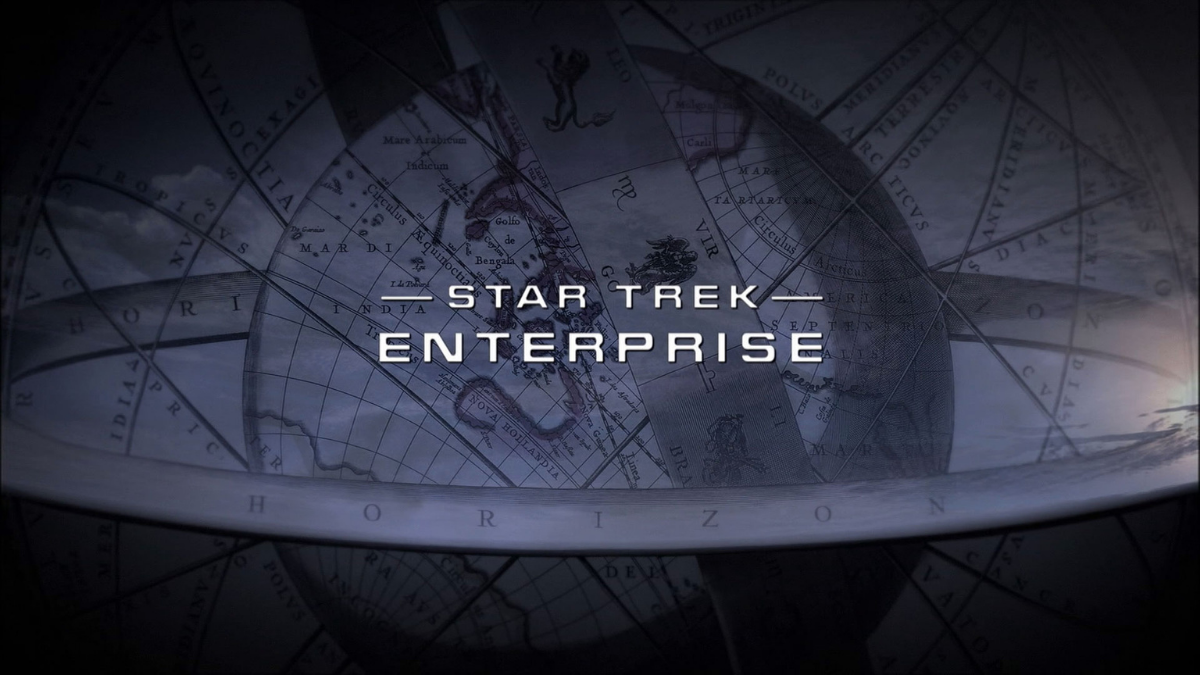TODAY IN STAR TREK HISTORY: "Mirror, Mirror" Is First Broadcast

Image: Mel Hunter, Ziff-Davis Publishing / Paramount / Unsplash
OCTOBER 6, 2023 – One of the most popular concepts in the Star Trek Universe is the idea of a parallel world that contains darker counterparts to our heroes in the “normal” spacetime continuum. That is to say, a mirror universe. Such a setting has been used to great effect in Star Trek: Deep Space Nine, Enterprise, and Discovery. Today in Star Trek history, though, is the occasion of the first appearance of what would become the Mirror Universe, in capital letters, Star Trek: The Original Series’ season two episode, “Mirror, Mirror.”
The episode was written by Jerome Bixby based on his short story, “One Way Street,” published in the December 1953/January 1954 issue of Amazing Stories. Bixby was a short story writer and scriptwriter who also produced three other Star Trek episodes as well as the short story on which Rod Serling’s teleplay was based for The Twilight Zone’s third season episode, “It’s a Good Life.”
Story outlines, treatments, and draft scripts went through the usual mills of rewrites by various individuals and input from the network. Series script editor and writer D. C. Fontana had quite the hand in providing suggestions on the story and in drafting the script, to the point that producer Robert Justman said she “shall henceforth walk in in beauty like the night….” According to Marc Cushman, Fontana “steamed up the role for Uhura with much of the teasing of Sulu on the bridge.” Fontana herself said, “In any show I wrote, or rewrote, I was always trying to get something more for the women. More for Nichelle, more for Majel, more for anybody that we had as a female guest lead. A lot of times the stuff for Nichelle and Majel got cut out, which I hated. But I was not the final arbitrator on those.”
One woman who got more than usual was Barbara Luna, who played Marlena. After being cast numerous times for ethnic roles and beginning to fear being typed, Luna was pleasantly surprised to be offered the role of Marlena. She said, “There was nothing ethnic about it; there was no accent; she was just female, and I thought that was so very interesting that they chose someone of my type to play her. It was very exciting that Gene Roddenberry had created a show that had those kind[s] of roles – not only were we not hired based on our ethnicity, but the roles were powerful. I mean, in 1967, for a woman to have that kind of power, as with Marlena, where with just one little push of the button she could kill.”
On the night in question, NBC viewers would have just finished watching Tarzan’s season two episode, "The Blue Stone of Heaven: Part I” or, perhaps, The Wild, Wild West’s season three episode, “The Night of Jack O’Diamonds” over on CBS, when “Mirror, Mirror” aired on Friday, October 6, 1967. It ran opposite Gomer Pyle, U.S.M.C.’s season four episode, “Gomer, the Beautiful Dreamer,” on CBS, among other shows. Despite the episode becoming a fan and cast favorite, it came in third in the Nielsen ratings that night. The following year, though, it garnered more attention.
“Mirror, Mirror” was nominated for a Hugo Award in 1968 for Best Dramatic Presentation. It faced some stiff competition, however. All four of the other nominees in that category were also Star Trek episodes: “The City on the Edge of Forever," "The Trouble with Tribbles,” “The Doomsday Machine,” and “Amok Time.” And the winner was ... "The City on the Edge of Forever."
“Mirror, Mirror” was among Star Trek’s “very finest,” according to William Shatner, and it gave the franchise a whole other universe to explore.
And, come on, if nothing else, this episode will go down in Star Trek history for giving us … bearded Spock.
David is a contributing writer for Daily Star Trek News on the Roddenberry Podcast Network. He is a librarian, baseball fan, and book and movie buff. He has also written for American Libraries and Skeptical Inquirer. David also enjoys diverse music, but leans toward classical and jazz. He plays a mean radio.






